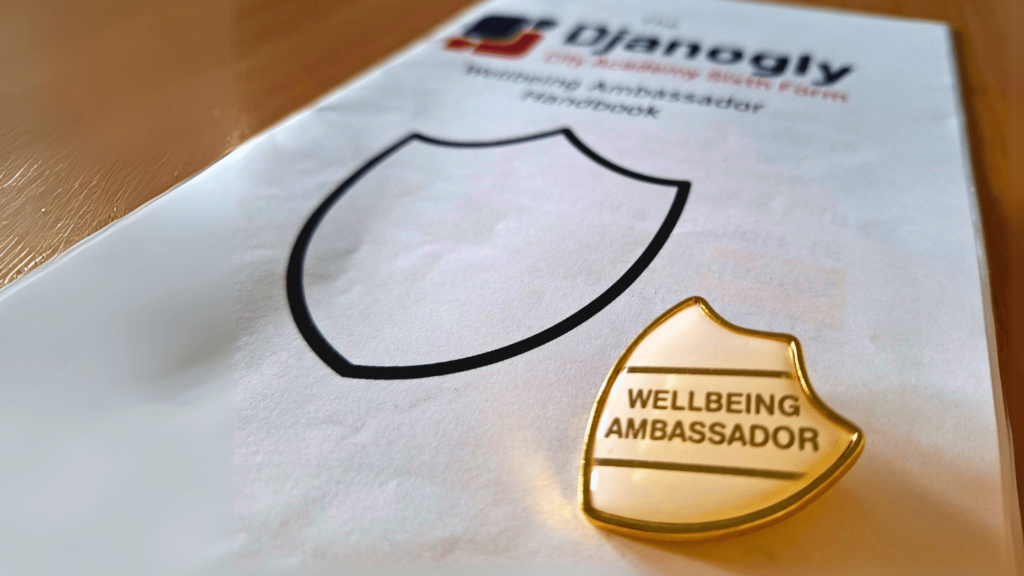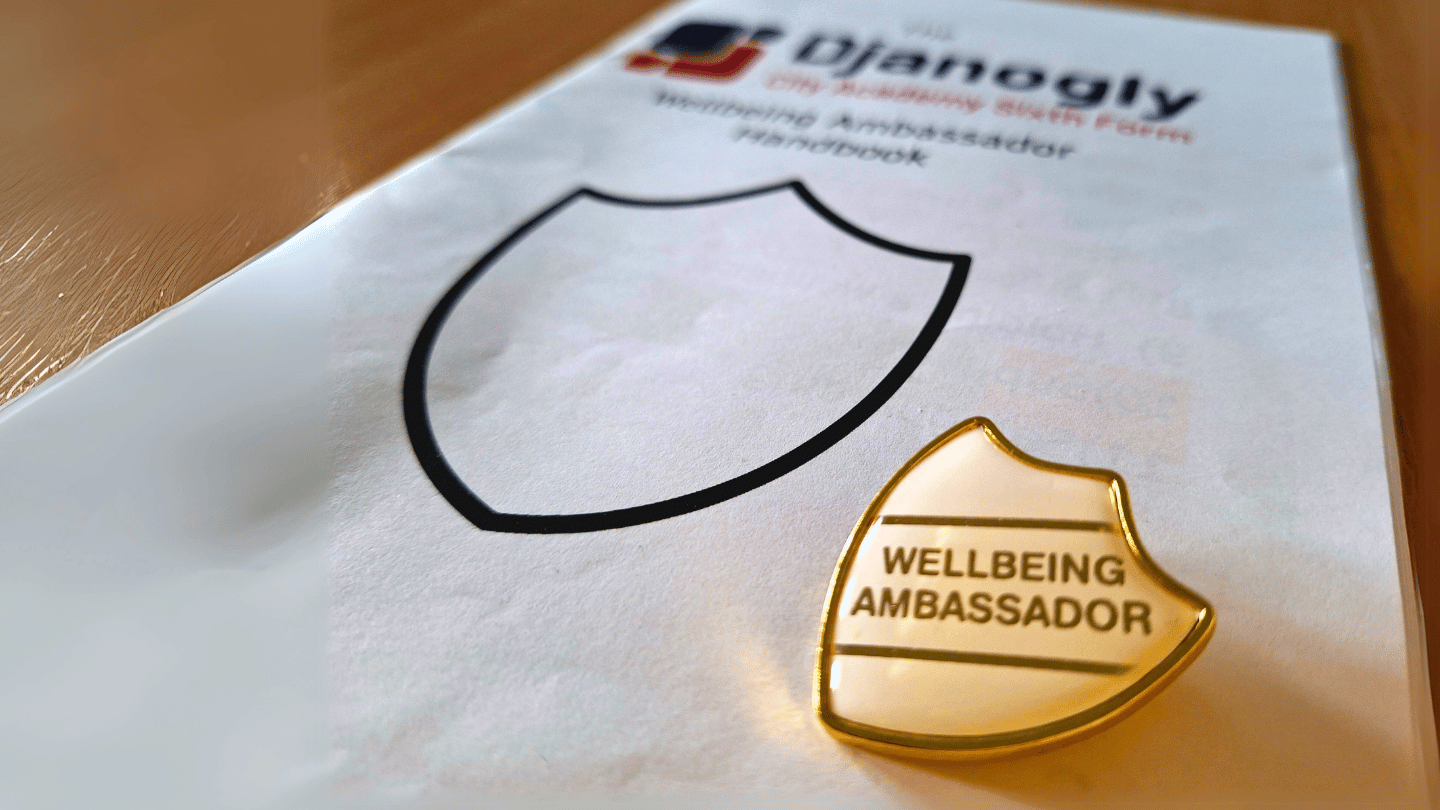At mdeducational foundation, we help schools build safe and nurturing communities that foster positive wellbeing for students because we know how much of a positive impact this can have.
Reports have shown a drop in levels of optimism and self-esteem in young people. According to My World Survey 2 (by UCD School of Psychology and Jigsaw), 6th years displayed the lowest levels of optimism compared to earlier years. Now more than ever, intervention is needed – so, we’re stepping up. As our Co-Founder Miriam Dervan said:
“If we can help even one young person, it will be worth every single penny.”
mdeducational foundation is a charity prioritising student wellbeing by providing fully funded wellbeing support in schools across the UK and Ireland. Our mission is for all post-16 students to feel supported in every aspect of their wellbeing, helping them on their journey to a brighter future. We’re aiming for a world in which every student has access to the wellbeing support they need, without delay.
We’re committed to enabling schools to kickstart their long-term wellbeing strategy by funding the placement of dedicated wellbeing professionals into post-16 settings. By doing that, we’re putting student wellbeing at the forefront of education and providing much-needed support for their wellbeing needs through education and beyond. Our Wellbeing Leads promote positive wellbeing through the delivery of an age-appropriate, agile, bespoke wellbeing curriculum. Through various forms of programmes, they support students’ wellbeing by normalising student psychological fitness and resilience through guidance and early intervention.
mdeducational foundation Wellbeing Leads create innovative ways to support the wellbeing of their students. One of our Leads Andrew Bould, placed in a school in England, who shared his peer-based approach to fostering positive wellbeing at his school. In this blog, we explore the innovative programme Andrew has developed and started as a commitment to enhance student wellbeing further. By empowering students to support one another, we can build a nurturing environment that benefits everyone. Keep reading to learn how the programme works.
Breaking barriers: Wellbeing Leads developing peer support groups to enhance student wellbeing further
“When we consider that in 2023, 23.3% of 17-19-year-olds had a probable mental disorder – the ages of sixth form students mdeducational foundation is aiming to support (NHS England, 2023), so it’s easy to see how much demand for support there is, and how much Wellbeing Leads are needed.
Despite the Wellbeing Leads’ best efforts, one issue we face is that some young people may not always want to share vulnerabilities with a Wellbeing Lead. There are a number of reasons why these barriers might be up, but in our role, we understand that we may not be the right person for every student to open up to. But as wellbeing professionals, we also know that by building deeper relationships with the students and providing alternative resources and routes to access support that we can help to break down these barriers.

One approach we’ve found very effective at our school is to form a team of student wellbeing ambassadors; a group of students who volunteer to be trained by a Wellbeing Lead as an effective line of support for other students. The development of these initiatives has become increasingly common in schools (primary through to post-16) and they’ve proven to be very effective in encouraging students to both talk and listen.
These groups can be referred to as peer support, wellbeing warriors, mental health ambassadors or other such names. At Djanogly City Academy Sixth Form we opted to call them “Wellbeing Ambassadors” as we feel this is best aligned with our approach to wellbeing and the connection to the Wellbeing Lead.
We’ve been fortunate to have had so many people who’ve been willing to put themselves forward as a Wellbeing Ambassador, and who encompass a diverse variety of genders, ethnicities and backgrounds.
What Wellbeing Model is being used?
We use a BPSS (Biological, Psychological, Social, Spiritual) model when thinking about wellbeing. This is to make sure that we’re taking a holistic approach to our students, by looking at the full story of their lives and experiences. We’ve selected this model to make sure our Wellbeing Ambassadors don’t overlap with the biomedical model used by mental health care services centred around pathologizing, diagnosis, and treatment overseen by an expert, this ensures there is no ethical conflict with any other therapeutic intervention the student may be engaged with.
What does the role of a Wellbeing Ambassador include?
This can vary according to the educational setting, but at Djanogly City Academy Sixth Form, the Wellbeing Ambassador role includes:
- Working with the Wellbeing Lead on all aspects of the programme
- Providing appropriate wellbeing support to other students
- Helping to facilitate the Wellbeing Hub (supported by the Wellbeing Lead)
- Feeding back to the Wellbeing Lead on wellbeing and safeguarding concerns in line with the school’s procedures
- Promoting positive and healthy wellbeing habits and culture across the sixth form
What training is provided in the programme?
Training for Wellbeing Ambassadors can be slightly different within each setting, but it generally goes across two half-days and has a more discussive and experiential approach around, to really help demonstrate how to support others. For Djanogly City Academy, we delved into the school’s wellbeing values, which mirror the person-centred core conditions, empathy, acceptance, and authenticity. We also discussed what wellbeing is alongside ways to hold a meaningful conversation with someone, how to support another through crisis, and finally safeguarding – making sure that Wellbeing Ambassadors are aware of what kind of things are causes for concern and which issues should be passed on to sixth forms safeguarding team.

As a team, we meet regularly to discuss ongoing ways to improve our Wellbeing Ambassadors Programme and make sure everyone in the team feels in the best position to support others. Students who complete the training are given a handbook to use as a great ‘go to’ space when supporting their peers, as well as a pin badge!
What impact are Wellbeing Ambassadors making?
We’ve seen a real increase in more students discussing their wellbeing concerns since we started the Wellbeing Ambassador Programme in our sixth form, with more students discussing wellbeing concerns, and some saying they feel more comfortable talking with somebody their own age, or who has been through similar experiences to them. In essence the programme has developed a deeper student voice and added another layer of support network around young people, while helping to reduce the stigma around mental health and wellbeing.
The ambassadors are proud to have supported their peers and to help embed a culture of positive and healthy wellbeing within their sixth form. The programme has also proven useful for personal statements and inspiring students towards future career aspirations in psychology, psychotherapy, and wellbeing.”
Tailoring wellbeing initiatives in schools
Catherine Llewellyn is a Clinical Supervisor at mdeducational foundation whose role is to ethically support all aspects of the work of the Wellbeing Lead in line with professional guidelines, codes of practice, and boundaries to provide supported learning, reinforcement and self-care. She shared her thoughts on the Wellbeing Ambassador Programmes, how they can be implemented for different purposes and how such initiatives can work in a variety of educational settings from her point of view.
“In one of our educational settings, the Wellbeing Ambassador Programme is being offered to prefects only, in another, students are encouraged to apply to become a Wellbeing Ambassador. And another focuses more on peer-to-peer support as a whole, creating a closer more caring student community.

What works in one setting, may work differently in another setting. Some programmes may have a heavier focus on one subject (for example grief) than another setting depending on the need in that particular geographical area. The programmes should be tailored to the needs of the individual students, demographic and focus.
A Wellbeing Ambassador Programme for post-16 students that focuses on peer support provides significant clinical benefits by fostering a supportive environment conducive to the wellbeing ethos within the educational settings the Wellbeing Leads are placed within. The programme can help to potentially mitigate feelings of isolation and anxiety, as some students feel more relatable and comfortable in approaching their peers, and it reduced the impact of any potential power dynamic with the Wellbeing Lead, which improves the opportunity for early intervention.
Wellbeing Ambassadors, who’ve been trained to recognise and respond to low-level needs can provide immediate empathic support and reduce the stigma of accessing any further intervention. There is also an opportunity here for Wellbeing Ambassadors to introduce and signpost students in need to the Wellbeing Lead and even accompany them if preferred.
As well as helping students in need, this initiative equips and empowers young people with more knowledge, skills as well as encouraging the development of emotional intelligence, self-awareness and resilience among students, promoting a culture of mutual care, understanding and openness.
Through training and continued support from the Wellbeing Lead (or a recommended source), Wellbeing Ambassadors feel equipped to use the learned skills and knowledge appropriately in support of their peers, while also knowing when to handover any higher level concern to the Wellbeing Lead.
Clinically, peer-led initiatives such as this can lead to improved overall wellbeing and academic performance across the cohort, while reducing any stigma around accessing support and raising awareness of the importance of wellbeing in every area of life.”
In one of our blogs, Catherine shared 5 great wellbeing workshop ideas that schools can use to engage with young people and encourage them to take care of their mental health and wellbeing in a practical way. Check them out here.
Thank you, Andrew and Catherine, for sharing your experiences and thoughts about Wellbeing Ambassador Programmes and how we can implement initiatives to further foster positive wellbeing, while building supportive school communities.
At mdeducational foundation, student collaboration and co-production are essential when it comes to making sure we continually develop programmes to be appropriately aligned to this specific age group. The co-production of programmes like Wellbeing Ambassadors with the Wellbeing Leads and the students, helps us to better cater our support for post-16 students – ensuring our approach is always as effective as possible in supporting young people on their journey through education and beyond.
Prioritising student wellbeing through education and beyond
mdeducational foundation is a charity that provides a three-year salary-funded commitment to placing dedicated wellbeing professionals within educational settings, enabling them to kickstart their long-term wellbeing strategies.
Related posts
A year of impact: mdeducational foundation Wellbeing Support Initiative in an Irish School
For the last few years, mdeducational foundation has been piloting and establishing an impactful wellbeing initiative in schools across the UK. Over the last year, it was time to take another significant leap forward [...]
Student Stories: The real impact of accessible wellbeing support in young people
Photos used in case studies are for representative purposes only. “21% of 16-year-olds in Northern Ireland don’t know who to talk to about stress and worry.” This figure comes from the report by Mental [...]
Behind the scenes of mdeducational foundation: Meet our Senior Administrative Officer, Coleen McLaughlin
mdeducational foundation is a charity prioritising student wellbeing by providing fully funded wellbeing support in schools. We enable educational settings to kickstart their long-term wellbeing strategies by providing a three-year salary-funded commitment to placing [...]





